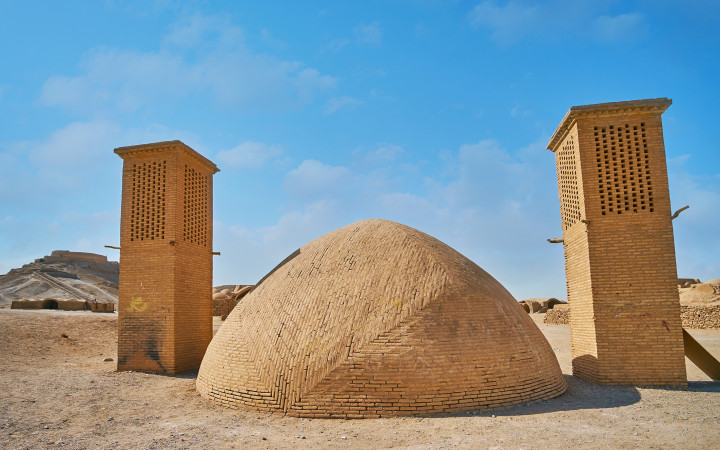Today’s Wonder of the Day was inspired by Asianne. Asianne Wonders, “What did people in the middle ages, use as refrigerators?” Thanks for WONDERing with us, Asianne!
Can you imagine life before today’s modern conveniences? The adults you know probably remember life before smartphones. Some might have grown up without video games. But what about all the other devices we often take for granted? Here’s an example: Try to picture the world before refrigerators.
That may be difficult! Kids today are used to grabbing a snack from the fridge after school. They may also help store leftovers there after dinner. Yes, life today would be quite different without refrigerators. How did people keep their food fresh before these machines were around?
The first electric refrigerator was made in 1913. Before then, people found other ways to store their food. In cold areas, ancient people could freeze their food. They could then store it in ice and snow. Warmer places allowed for drying food in sunlight. Experts say these early practices gave people the option to settle and form communities.
One advanced method of food storage arose in Persia around 400 BCE. People there stored food in structures called Yakhchal. These were domed buildings made from mud brick to keep ice frozen during even the warmest summer months. The structures, many of which still stand today, were insulated by walls up to six feet thick.
During the Middle Ages, people preserved meat by salting or smoking it. They would also dry many foods, including grains. Vegetables were often salted or pickled. Many fruits were dried or turned in preserves. These foods could then be stored in cool places, like cellars and caves. This allowed people to save food for times of need during droughts and famines.
Later, buildings called ice houses or ice pits built upon the idea of the Yakhchal. They were cooled by an underground pit full of ice. A larger above-ground building covered the pit. Ice houses were very common by the 1800s. This is also when ice delivery became commonplace. Businesses specialized in delivering blocks of ice to fill ice pits during the summer months.
At the end of the 19th century, many people kept their food fresh in iceboxes made of wood. These cabinets held large blocks of ice to keep food cool. Iceboxes were lined with tin or zinc for insulation. Ice delivery businesses grew as more homes required ice to preserve food.
By the 1930s, many people were using electric refrigerators to keep food fresh. Since then, growth in technology has led these machines to become more advanced. Many refrigerators today come with built-in water filters and ice makers. Some people even choose smart refrigerators that can help them meal plan and grocery shop.
Does your family use a refrigerator to keep food fresh? Maybe you even practice other preservation methods. You might can fruit. Or maybe you pickle vegetables. People today have many options when it comes to storing food!
Standards: C3.D2.His.2, CCRA.R.4, CCRA.L.3, CCRA.L.6, CCRA.R.2, CCRA.R.10, CCRA.R.1, CCRA.R.2, CCRA.SL.1, CCRA.W.2, CCRA.W.4, CCRA.SL.2




